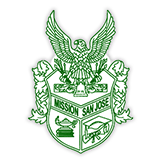Academic Honesty
Statement of Philosophy
The primary goals of any educational institution should be to enhance the learning environment and to promote the pursuit of intellectual excellence. Mission San Jose High School believes it should reinforce the values of our democratic society, teach citizenship, and provide an environment conducive to ethical behavior. Our community believes that the school should maintain a climate in which honesty, courtesy, consideration, integrity and a concern for others are highly valued.
Cheating is an obstacle to achieving these goals. Factors that contribute to cheating include: pressure for grades, not enough time to finish all the required homework, students taking advantage of teachers who do not monitor their classes closely, unrealistic parent expectations, and inefficient study skills. None of these reasons makes cheating acceptable. In any of its forms, for whatever reason, cheating denies the value of education. Our teaching staff strives to put the importance of learning above the importance of grades and to convince students that their best efforts are all that anyone should expect.
Definition
Cheating is taking (or lending) at inappropriate times a person's work, information, ideas, research, or documentation, without properly identifying the originator. It includes using unauthorized materials when testing or other acts specified in advance by the teacher.
The teacher's professional judgment will determine whether cheating has occurred. Students are reminded not to give the instructor cause to consider their actions violative.
To avoid inadvertent dishonesty the following list, which is not intended to be all-inclusive, delineates a variety of methods of cheating:
- Letting someone else see one's own or another's paper during an examination, test, or quiz.
- Looking at someone else's paper during an examination, test, or quiz.
- Using any kind of 'cheat' notes.
- Talking with another student during an examination, test, or quiz.
- Copying work assigned to be done independently, or allowing someone else to copy one's own or another's work, including computer generated information and programs. Since individual teachers hold different expectations with regard to homework (i.e. some teachers encourage students to work together while other teachers may expect an assignment to be completed independently at home), it is the responsibility of the individual teacher to clarify to the student his/her expectations regarding individual assignments.
- Copying or closely paraphrasing sentences, phrases, or passages from an uncited source while writing a paper or doing research.
- Giving test information to other students in other periods of the same teacher/same course.
- Submitting individual projects not wholly one's own.
- Fabricating or altering laboratory data
Consequences
Consequences for cheating are severe. They are school-wide and cumulative for all the years you attend Mission San Jose High School.
First Offense:
- Student receives F grade for the assignment.
- Teacher notifies parent and administrator.
- Counseling is provided for student to find acceptable ways to meet course obligations.
Second Offense: (in any class)
- Student receives F grade for the assignment.
- Teacher notifies parent and administrator.
- Student receives a grade of 'F' for the grading period.
- Counseling is provided for student to find acceptable ways to meet course obligations.
Third Offense: (in any class)
- Student receives F grade for the assignment.
- Teacher notifies parent and administrator.
- Possible SST/placement consequences
- If in the same class for all three (3) offenses, student dropped from class with a grade of 'F'.
- Counseling is provided for student to find acceptable ways to meet course obligations.
Teacher Responsibilities:
- Make your policy and personal philosophy known to all students. Be specific about your expectations for tests, papers, and homework.
- Be fair to all students: Test on test days; Prepare students for and give notice of tests; Be available to students before work is due.
- Supervision needs to be constant during test periods; proctor your tests actively.
Student Responsibilities:
- Manage time so you have adequate time to study for any tests or quizzes.
- Take responsibility to find out what material will be covered on the test or quiz.
- During the test: Make sure your paper cannot be seen by anyone else; Keep your eyes on your own paper; Do not talk (Ask your teacher, not your neighbor, questions of clarification).
- After the test or quiz, do not discuss questions with other students until ALL students have taken it.
- Do not copy other's homework; do not work with other students on assignments unless the teacher gives instructions to do so or unless the teacher tells the entire class to work together..
- Do not copy or paraphrase others without a footnote.
- In fairness to all, students are urged to make the teacher aware cheating is taking place, including the kind of cheating and the methods used.
Parent Responsibilities:
- Reinforce the values you believe in. Make sure that your child understands that your moral values apply every day.
- Reduce the pressure for 'success at any cost'. Give your child support even when his or her best effort doesn't earn an 'A'.
- Be aware of homework. Help your child protect study time. Provide a good study environment (desk, good light, quiet, etc.) Be sensitive to your child's study time frame. When s/he says s/he needs to study. S/he means it. Students commonly cheat because "there wasn't enough time."
Final Exam Study Days (Study Days)
There will be no field trips and activities that interrupt class time, excluding athletics, during the week before final exams. Teachers should not get students out of classes during study days or finals week. Teachers should adhere to the policies regarding to departmental test days and quizzes. Major projects should not be due during finals. There should be at least two days set aside for review for finals, and no major tests at least two days before finals begin. (Definition of a final is a quarter or semester's worth of work; a unit test is not a final.)
